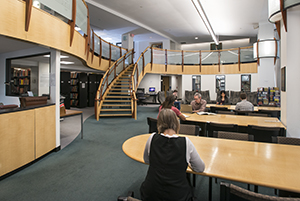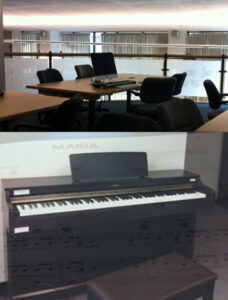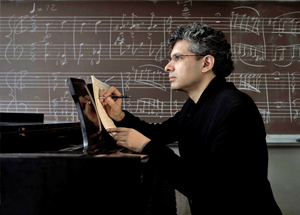Pre-registration is required for some, but not all sessions. See below for details.

photo by L.Barry Hetherington
Managing your references: Overview of EndNote, Mendeley, and Zotero – Register
Tue April 1, 12:00 – 1:00 pm, 14N-132
Contact: Remlee Green, remlee@mit.edu
Using citation management software to create and maintain a collection of references or PDFs is common and important in today’s academic world. These tools will help you to save citations from your favorite databases and websites, store related PDFs or attachments, and quickly build a bibliography for your papers and publications. We’ll compare and demo 3 tools (EndNote, Mendeley, & Zotero), so you’ll leave the session knowing which tool might work best for your needs.
Please register for this session.
3D Printing for Fun and Science? A Conversation about Digital Fabrication, the Library, and You – Register
Tue April 8, 11:00am – 12:30 pm, 3-442
Contact: Randi Shapiro, shapiror@mit.edu
Digital fabrication has changed considerably over the last few decades. Barriers to use have fallen, and technologies that were once the purview of specialized researchers are now sold in retail outlets like Sears, Staples and the Microsoft store. Schools and libraries have even begun getting into the act, from NC State to the Chicago Public Library.
Applications include producing prosthetic hands for accident victims, manufacturing replacement part for hard-to-source components, or even mapping word frequency across the history of a given journal and printing time series histograms.
But what about here at MIT?
This session will discuss the range of fabrication technologies now available, as well as those available at MIT, for sale, for rent, and (for a limited time, experimentally) through the Libraries. As part of this session, the Libraries have acquired a MakerBot Replicator 2 that is capable of producing objects in PLA plastic.
Plus, participants will have the opportunity to see a 3D-printer in action and even design their own objects – submit a printable file, generated by the free MakerWare software, by Tuesday, April 1st. Up to five submissions will be selected for production before the discussion (provided the designs are producible!).
(Hint: You can try turning a photo into a 3D model with 123D Catch.)
Presenter: Matt Bernhardt, Web Developer, MIT Libraries
Please register for this session.
Mendeley Basics – Register
Wed April 9, 12:00 – 1:00 pm, 14N-132
Contact: Peter Cohn, pcohn@mit.edu
Mendeley is a free tool that can help you organize and manage your citations and PDFs. Learn how to use Mendeley to discover the latest research, collaborate with others, and automatically generate bibliographies.
Please register for this class.
Business Information for Engineers and Scientists – Register
Tue April 15, 1:00 – 2:00 pm, 14N-132
Contact: Howard Silver, hsilver@mit.edu
This session will introduce engineers and scientists to business information resources that will help you understand the commercial potential for your ideas, how to find partners, and sources for financial support. We will use realistic examples and hands-on exercises with key resources to demonstrate how to match your ideas and discoveries with the opportunities and realities of the marketplace.
Overview of Citation Analysis – Register
Tue April 15, 2:30 – 4:30 pm, 66-144
Time: 2:30-4:30 pm
Contact: Randi Shapiro, shapiror@mit.edu
Whose articles cite a body of work? Is this a high impact journal? How might others assess my scholarly impact? Citation analysis is one of the primary methods used to answer these questions.
Academics, publishers, and funders often study the patterns of citations in the academic literature in order to explore the relationships among researchers, topics, and publications, and to measure the impact of articles, journals, and individuals.
In this two-hour workshop, we will provide an overview of citation analysis, including: sources of data for citation analysis, common impact measures, and freely available software.
Attendees of the class will be eligible for an individual consultation session to explore individual projects and questions.
Presenter(s): Dr. Micah Altman, Director of Research, MIT Libraries; Sean Thomas, Program Manager for Scholarly Repository Services, MIT Libraries
Please register for this class.
Endnote Basics – Register
Wed April 16, 5:00 – 6:00 pm, 14N-132
Contact: Anita Perkins, perkins@mit.edu
EndNote is a “personal bibliographic software” package which allows you to create and manage a database of bibliographic references. Learn how to find and use information more effectively in our hands-on workshop.
Please register for this class.
NIH Public Access Compliance Hands-on Working Session – Register
Thu April 24, 1:00-2:00 pm, 14N-132
Contact: Courtney Crummett, crummett@mit.edu
Missing a PMCID? Can’t figure out why a paper isn’t in compliance? Lost in the NIH manuscript system? Join us for a problem solving session.
This session is designed to provide an opportunity for hands on problem solving in the systems that need to be navigated in the process of submitting and authorizing manuscripts and reporting progress on NIH Funded Grants (eRA Commons; NIHMS, and MyNCBI). Please bring your NIH compliance problems to this session to work through together. Registration encouraged.
Patent searching fundamentals
Thu April 24, 5:00 – 6:00 pm, 14N-132 – Register
Or
Fri April 25, 12:00 – 1:00 pm, 14N-132 – Register
Contact: Anita Perkins, perkins@mit.edu and Anne Graham, grahama@mit.edu
You won’t come out of this session qualified to be a patent attorney, but you will be able to successfully find patent references from all over the world, and know how to find patent text and diagrams. This will be a hands-on session that will help de-mystify the patent literature and show key resources for finding patents through free resources available on the web.
Going beyond Google Scholar: Using the Web of Science and Other Citation Searching Resources to Discover Articles
Mon April 28, 12:00 – 1:00 pm, 14N-132
Contact: Michael M Noga, mnoga@mit.edu
Do you usually look for articles by searching keywords and authors? Try tracking ideas back and forth through time by searching citations to and from articles, reports and other scholarly literature. Citation searching started with the Science Citation Index (Web of Science) and now is part of several other information sources such as Scopus, e-journal collections, and Google Scholar. We will look at several places where you can find scholarly literature through citations and the different results you can get.
Collect and Create Your Own Geographic Data – Register
Mon April 28, 2:00 – 4:00 pm, 14N-132
Contact: Jennie Murack, murack@mit.edu
Can’t find the data you need online? No problem! In this workshop we’ll learn how to collect data in the field using GPS units and phone apps and then use it in GIS software. We’ll also explore georeferencing scanned maps, drawing new data layers (like roads or rivers), and mapping points from a spreadsheet based on coordinates or addresses. Prerequisite: A basic knowledge of GIS and ArcGIS software








